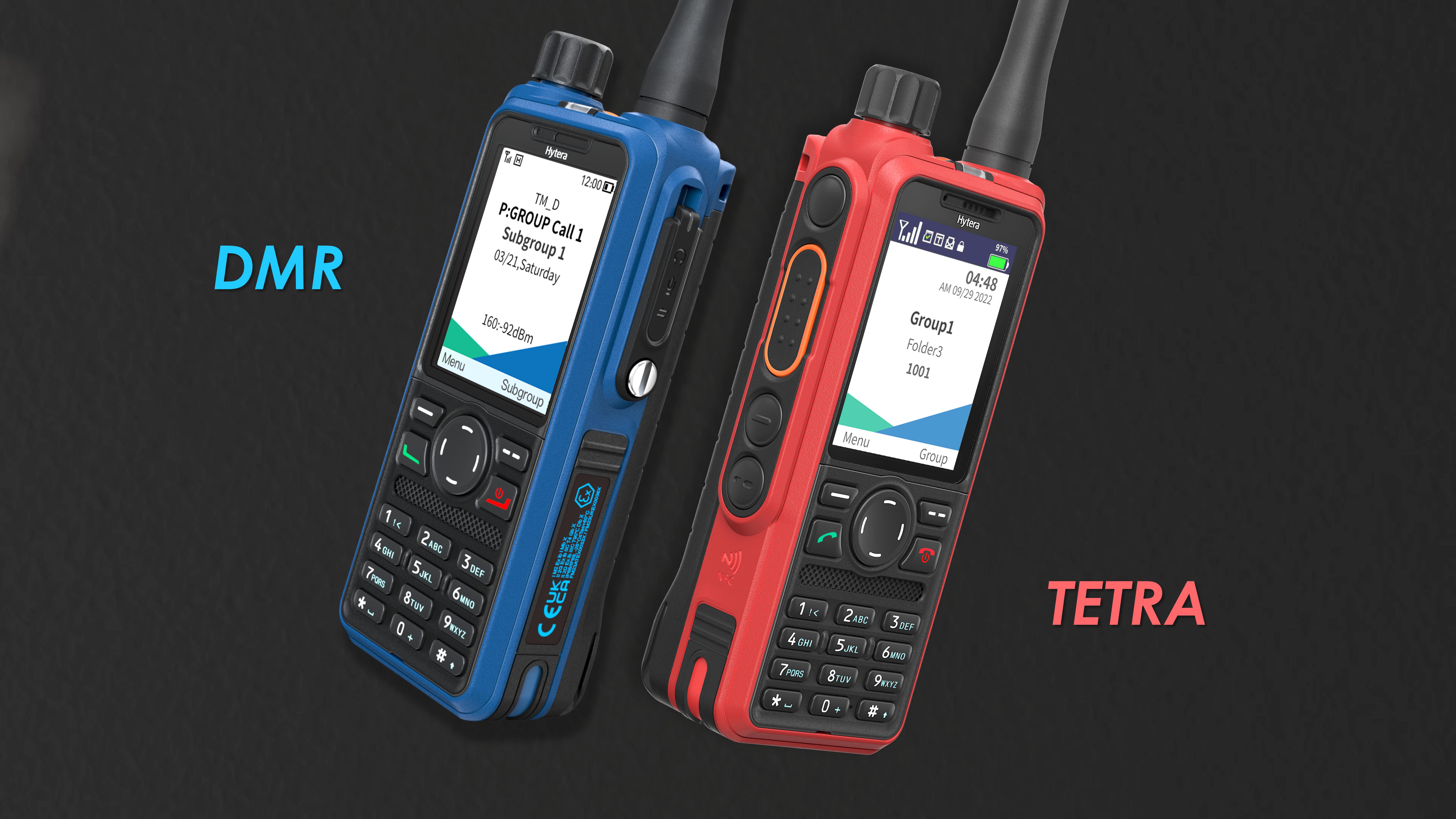DMR or TETRA: How to Select the Right Explosion-proof Radio for High-risk Workplaces
Explosion-Proof Radio
When it comes to communication in high-risk workplaces, selecting the right explosion-proof radio is crucial. DMR (Digital Mobile Radio) and TETRA (Terrestrial Trunked Radio) are two of the most commonly used digital communication technologies, each offering unique advantages and applications. Understanding their differences and suitability can help ensure efficient and safe communication in complex work environments.

1. Technology Architecture and Communication Capability
DMR utilizes two-slot TDMA (Time Division Multiple Access) technology, which allows two communication slots in a 12.5 kHz channel. Its architecture is relatively simple, providing wide coverage with limited frequency resources. This makes it ideal for environments that require extensive coverage but have a relatively low user density, such as mining or oil and gas operations.
In contrast, TETRA uses four-slot TDMA technology, supporting four communication slots in a 25 kHz channel. This enables TETRA to accommodate more users within the same frequency range and offers faster call setup and more efficient scheduling. TETRA is often used in high-density user environments that require complex communication management, such as chemical plants, public emergency services, and large industrial facilities.
2. Audio Quality and Communication Stability
In noisy environments, clear audio is critical for effective communication. DMR radios feature digital noise suppression technology, which allows for clear audio even over long distances. This is especially useful in noisy environments like mining or construction sites. On the other hand, TETRA radios are renowned for their low latency and high-quality voice, providing more stable real-time communication. This makes TETRA a valuable asset in emergency responses that require seamless communication.
3. Data Transmission and Integration Features
DMR supports basic data transmission features, such as GPS location tracking and text messaging, which are sufficient for most industrial needs. However, for applications requiring higher data rates and more diverse functionalities—such as live video streaming or sensor data transmission—TETRA offers more powerful data transmission and integration capabilities.
4. Battery Life and Energy Efficiency
Battery life is a key factor in long-duration operations. DMR radios typically offer longer battery life, making them suitable for environments where frequent recharging is not possible, such as offshore oil rigs or mines. While TETRA may not be as energy-efficient as DMR, advancements in technology have significantly improved its battery life in recent years.
5. Cost and Deployment Complexity
DMR explosion-proof radios generally come with lower deployment and maintenance costs, making them a more budget-friendly option for projects with limited resources. In comparison, TETRA radios involve higher initial deployment and maintenance costs due to their more complex systems and advanced features. However, in environments where efficient communication and safety management are critical, the investment in TETRA typically yields a higher return.
6. Application Scenarios
DMR is well-suited for environments that require broad coverage, lower costs, and lower user density, such as mining operations and oil and gas exploration.
TETRA is ideal for high-density communication, fast response times, and complex scheduling and management, making it the preferred choice for environments like chemical plants, emergency rescue teams, and large industrial parks.
Which is the Best Choice for You?
The decision between DMR and TETRA explosion-proof radios depends on your specific operational needs and work environment. For wide coverage, simpler structures, and budget-friendly solutions, DMR offers excellent practicality and cost efficiency. However, if your operation requires rapid communication, advanced data transmission, and complex scheduling, TETRA is the superior choice.
At Hytera, we provide a comprehensive range of explosion-proof radios tailored to meet the highest safety standards and the unique demands of industries like mining, oil and gas, and emergency services. Whether you opt for a DMR or TETRA solution, our radios offer robust features, exceptional audio quality, and reliable battery performance. Trust Hytera to keep your team connected and safe in even the most challenging environments.





